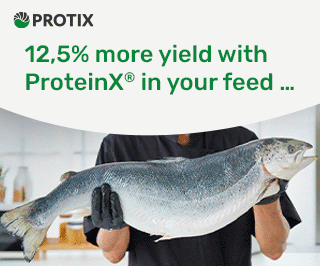The real question is not whether to engage in fish farming, but how to do it most effectively argues The Norwegian Seafood Federation’s Krister Hoaas.
In Norway, a recurring debate centers on the notion that fish farming is either unnecessary or fraught with problems. While this may be somewhat of a strawman argument, it’s a perspective worth engaging with.
Detractors cite a number of problems with the industry, ranging from land use and alleged destruction of fjords to concerns about soy and deforestation of the rainforest as well as fears about the use of medication in aquaculture.
Another commonly encountered claim is that aquaculture would be unnecessary if only wild fish stocks were better managed. While wild fishing is indeed vital, particularly in Norway where we boast some of the world’s best management of wild fish stocks, it’s not sufficient to meet the needs of a growing global population.

The United Nations’ Food and Agriculture Organization (FAO) provides clear data on this: the current level of take from the oceans cannot increase enough to match global demand.
To maintain or increase seafood’s share in the global diet, we must focus on expanding aquaculture to meet the rising demand for seafood consumption.
Interestingly, since 2015, worldwide consumption of seafood from aquaculture has overtaken that from wild catch. This includes non-human consumption uses like fish oil and fishmeal. Thus, contrary to the claims of some certain media outlets, the UN underscores the necessity of more fish farming. They also recognize Norway as a global leader in almost every aspect of the aquaculture value chain.
Looking ahead, I hope we shift our focus to enhancing aquaculture production and advancing technology, rather than continually questioning its very existence.
The real question is not whether to engage in fish farming, but how to do it most effectively. And Norway is exceptionally well-placed to lead in this area. Just imagine the possibilities.



